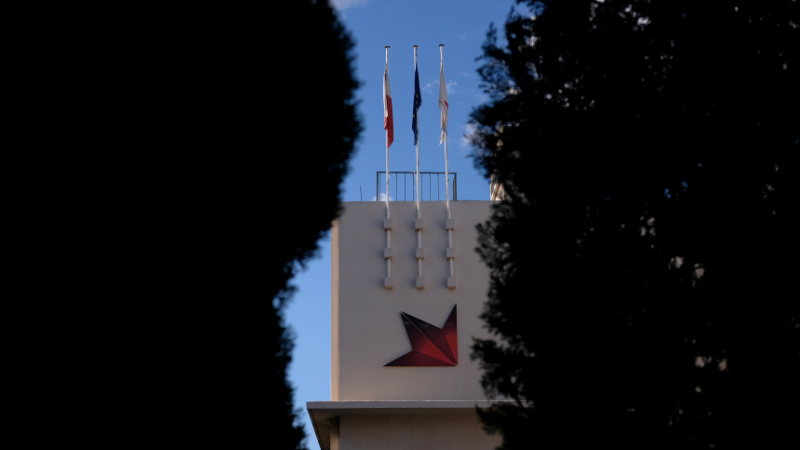Broadcasting Minister Owen Bonnici’s failure to present Public Broadcasting Services (PBS) reports following multiple requests both in parliament and by The Shift, is raising questions as to whether these reports exist at all.
Over three weeks later, questions surrounding the existence of obligatory annual reports by PBS remain unanswered as Bonnici dodges questions and PBS itself remains tight-lipped on the filing of the reports – that detail how the station spends taxpayers’ money and assess whether it is fulfilling its public service obligations.
The reports are supposed to be filed in line with the National Broadcasting Policy of 2004.
Shadow Minister for Broadcasting, Graham Bencini, who has been pressing Bonnici for the reports in parliament told The Shift that, so far, the minister has refused to table the reports. Bencini has been hounding Bonnici for the reports throughout June, but the minister has dodged the question altogether.
At the end of May, Bonnici said the requested information was still in the process of being collected. Asked again about the reports a week later, Bonnici blatantly dodged the question, replying: “I am informed the mentioned report is present by the Editorial Board to the Board of Directors in the form of a document listing the selection of programmes shortlisted by the same board. The final schedule is then presented to PBS’ principal shareholders, and therefore the government.”
Asked to table the reports for the third time last week, Bonnici merely replied that he has “nothing left to add” to his previous response.
“Clearly the minister either does not want to present them to parliament as he is bound to do following my request or these reports are not being compiled as they should be as per the national broadcasting policy,” Bencini told The Shift. “If the minister has these reports and does not want to present them, then clearly he has something to hide. Alternatively,iIf he does not have the reports, then he is not doing his job in demanding such reports, and the editorial board are going against the national broadcasting policy, which would make me conclude that they too have something to hide.”
The Shift has also asked Bonnici, and PBS, whether the reports exist, however, no reply was forthcoming despite numerous reminders.
The 2004 policy states that it is the responsibility of PBS’ editorial board “to annually present, through the board of directors, a report to government giving its assessment of the way the schedules of the stations run by the PBS stations are fulfilling their public service obligation”.
Former PBS Chairman Clare Vassallo, who formed part of the board when the policy was introduced had explained to The Shift that the reports are “very important” as they assess whether taxpayer money given to PBS is “accounted for”.
The reports “tell the public where their money is being spent in their own interest and out of their own taxes, for a service that is supposed to serve the public. It is in the remit of the station, as a public broadcaster, to carry out its duty in the public interest,” she told The Shift.
In 2020, the government announced that it would be investing €30 million in such programmes over a span of five years, averaging €6 million in taxpayers’ money per year. When the sum of the funding was announced, the former minister responsible for broadcasting, Carmelo Abela, had boasted that such an amount was double that allocated by the previous administration. However, without the reports assessing how such funds are being spent, the generous allocation raises questions.
Meanwhile, The Shift also reported that PBS defied orders given by the Data Protection Commissioner to publish details, including names and payments, of the editorial board, as well as the contract of Executive Chairman Mark Sammut, which this newsroom had requested through a Freedom of Information request. Bonnici has also remained silent on the matter.
Scrutiny of whether the Public Broadcasting Service is fulfilling its obligations towards the public comes at a time when the extent of State capture of the public broadcaster is being seriously questioned, especially since Labour sympathiser Norma Saliba became the station’s Head of News.
In a tweet calling out a number of countries including Malta in June, the General Secretary of the European Federation of Journalists, Ricardo Gutiérrez wrote that it is high time these countries “guarantee the full independence of public service media governance and funding in these countries”.
In September, a study by the Center for Media, Data and Society classified PBS as “state-controlled”.
The glaring lack of impartiality in the State broadcaster was also noted, and condemned, by the three judges conducting the inquiry into the assassination of journalist Daphne Caruana Galizia.













It seems that this Government committed some €6M per year to sustain the Public Service Obligation (PSO) concept for a period of 5 years. Now it is time to see how these funds are really being managed and verify whether they are serving the same putpose. It is evident that PBS has a lot to hide, otherwise the Minister would have reacted differently, knowing how sarcastic he can be with that farcical smile on his face. This particular Minister (like many of his colleagues) is a very good example of an empty vessel who sounds hopeleseness!